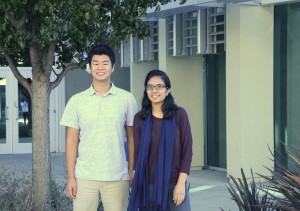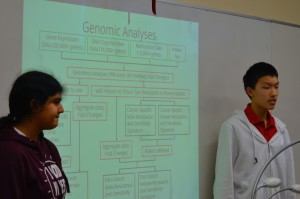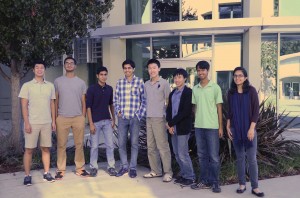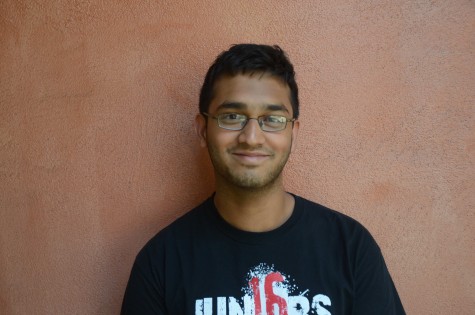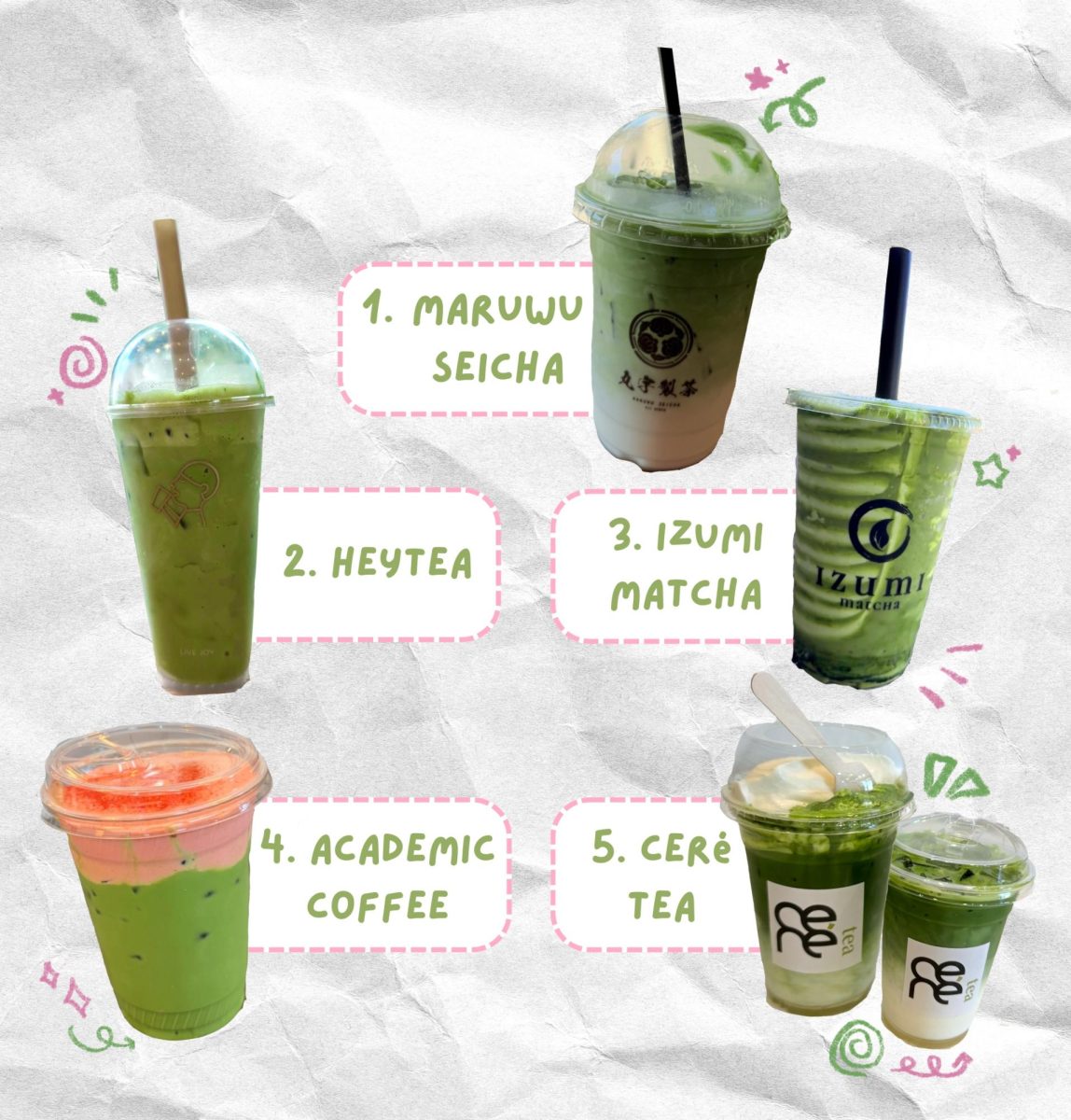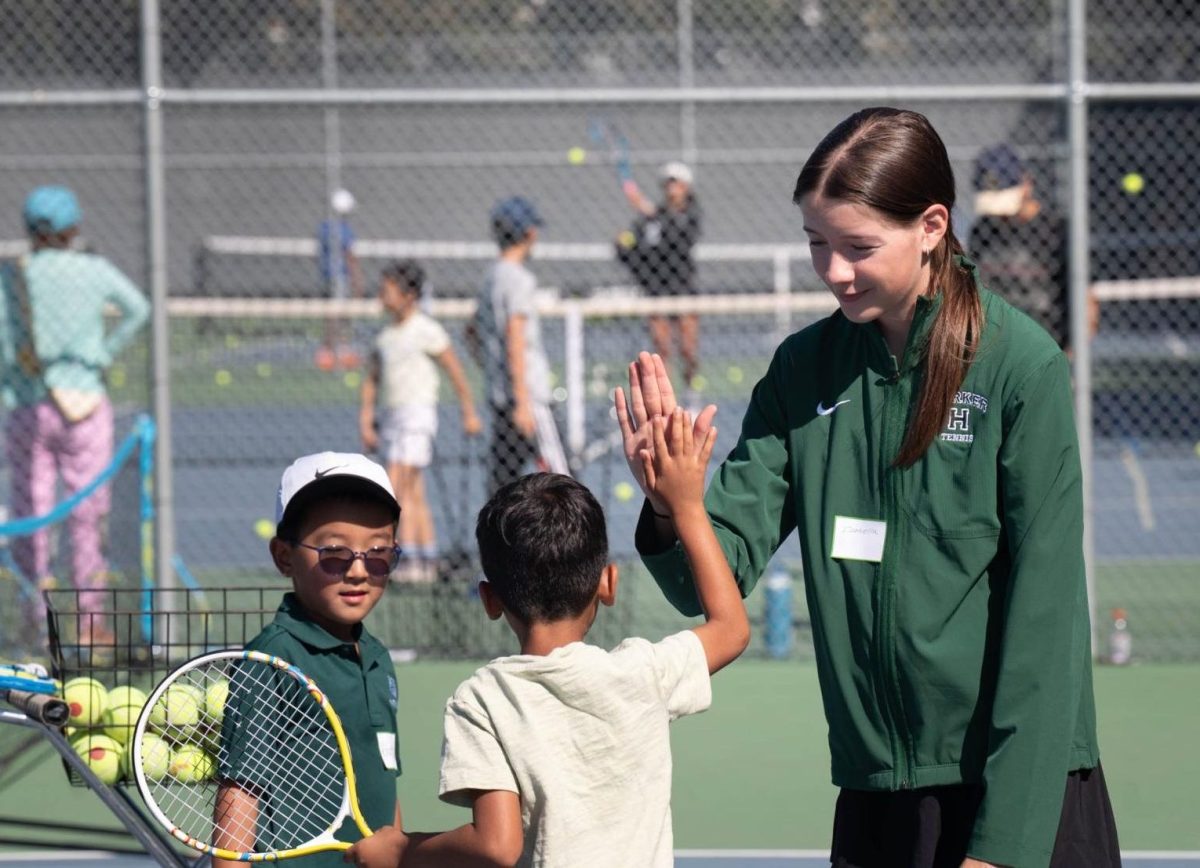Juniors place nationally in Siemens competition
Evani Radiya-Dixit and David Zhu awarded a $20,000 scholarship
December 9, 2015
Juniors Evani Radiya-Dixit and David Zhu placed fifth nationally in the Siemens Competition for Math, Science, and Technology in Washington D.C. yesterday, receiving a $20,000 scholarship from the Siemens Foundation.
Each year, the competition receives over 1400 individual and team applications, from which it selects 300 semifinalist projects. Out of these, 60 are selected as regional finalists, of which 12 compete at the national level.
Evani was surprised by the announcement, as she had not expected that their project would become a finalist.
“It was super exciting, and the whole event was so surreal just because of the people we met and the act of being there itself,” Evani said.
David and Evani’s research project, titled “Automated Classification of Benign and Malignant Proliferative Breast Cancer Lesions,” focused on making a machine-learning algorithm to characterize early forms of cancer cells.
Their algorithm can characterize cells as either benign, which indicates that they will not spread to other parts of the body, or as malignant cells, which will spread and grow out of control. By automating the diagnosis process, their algorithm can improve diagnostic accuracy and reduce problems with treatments.
David, who worked with Evani on the project for the majority of the summer at a laboratory in Harvard Medical, enjoyed meeting other student scientists and learning about their projects.
“I think it was really great to be able to meet with all these other really smart people,” he said. “These other students just look like ordinary kids but they really have the potential to really change the world.”
Evani recommends that students interested in pursuing science-related fields should try science research and reach out to other researchers for assistance.
“Go out and try, just try a project, whatever you’re interested in,” she said. “It is okay if it is on a small scale or not too in depth, as long as you put your foot into the waters and just get started on your project. There are also a lot of resources you can reach out to, professors and postdocs [postdoctoral researchers], because they are usually really willing to help out high school students.”
The Society for Science and the Public will announce semifinalists for the Intel Science Talent Search, another research competition specifically focused on high school seniors, on Jan. 8 next year.


















![“[Building nerf blasters] became this outlet of creativity for me that hasn't been matched by anything else. The process [of] making a build complete to your desire is such a painstakingly difficult process, but I've had to learn from [the skills needed from] soldering to proper painting. There's so many different options for everything, if you think about it, it exists. The best part is [that] if it doesn't exist, you can build it yourself," Ishaan Parate said.](https://harkeraquila.com/wp-content/uploads/2022/08/DSC_8149-900x604.jpg)




![“When I came into high school, I was ready to be a follower. But DECA was a game changer for me. It helped me overcome my fear of public speaking, and it's played such a major role in who I've become today. To be able to successfully lead a chapter of 150 students, an officer team and be one of the upperclassmen I once really admired is something I'm [really] proud of,” Anvitha Tummala ('21) said.](https://harkeraquila.com/wp-content/uploads/2021/07/Screen-Shot-2021-07-25-at-9.50.05-AM-900x594.png)







![“I think getting up in the morning and having a sense of purpose [is exciting]. I think without a certain amount of drive, life is kind of obsolete and mundane, and I think having that every single day is what makes each day unique and kind of makes life exciting,” Neymika Jain (12) said.](https://harkeraquila.com/wp-content/uploads/2017/06/Screen-Shot-2017-06-03-at-4.54.16-PM.png)








![“My slogan is ‘slow feet, don’t eat, and I’m hungry.’ You need to run fast to get where you are–you aren't going to get those championships if you aren't fast,” Angel Cervantes (12) said. “I want to do well in school on my tests and in track and win championships for my team. I live by that, [and] I can do that anywhere: in the classroom or on the field.”](https://harkeraquila.com/wp-content/uploads/2018/06/DSC5146-900x601.jpg)
![“[Volleyball has] taught me how to fall correctly, and another thing it taught is that you don’t have to be the best at something to be good at it. If you just hit the ball in a smart way, then it still scores points and you’re good at it. You could be a background player and still make a much bigger impact on the team than you would think,” Anya Gert (’20) said.](https://harkeraquila.com/wp-content/uploads/2020/06/AnnaGert_JinTuan_HoHPhotoEdited-600x900.jpeg)

![“I'm not nearly there yet, but [my confidence has] definitely been getting better since I was pretty shy and timid coming into Harker my freshman year. I know that there's a lot of people that are really confident in what they do, and I really admire them. Everyone's so driven and that has really pushed me to kind of try to find my own place in high school and be more confident,” Alyssa Huang (’20) said.](https://harkeraquila.com/wp-content/uploads/2020/06/AlyssaHuang_EmilyChen_HoHPhoto-900x749.jpeg)



